A diagnosis of young onset Parkinson’s disease has not stopped Perthshire man Marc van Grieken.
Parkinson’s disease is a condition which sees parts of the brain become progressively damaged over many years.
It is caused by a loss of nerve cells in a part of the brain.
Marc developed symptoms when he was in his late 40s.
But despite this, the landscape architect continues to be very active and he is very passionate about raising awareness of the condition.
He also believes it is important to support the ongoing research into Parkinson’s disease.
Marc has spent the last few years helping to raise money for research commissioned by Parkinson’s UK and ground-breaking studies by researchers at the University of Dundee.
And he has surpassed the target he had set a few years ago in his quest to raise £60,000 for Parkinson’s UK research.
The 65-year-old has now collected an incredible £105,000 in total.
Marc’s leg ‘just froze’ after marathon training
Marc, who lives in Comrie, was diagnosed 17 years ago.
He used to be a very keen runner and it was while he was in training for a marathon in 2005 that he became aware of a problem.
Marc, then aged 49, said: “My right leg just froze.
“It would stop for no apparent reason and would not move.
“Eventually after several visits to the doctor and physiotherapist, I got a diagnosis of Parkinson’s which was formally confirmed in 2006.”
Marc wasn’t aware of having any other symptoms but eventually people started noticing that something wasn’t quite right, for example because he had fewer facial expressions.
“I have never had a tremor but everyone’s Parkinson’s is different.”
He didn’t start taking medication until later on and noticed a big difference when he started taking Levodopa, which acts as replacement for the chemical dopamine.
Dopamine is made in the brain and helps to communicate messages between nerve cells in the brain and the rest of the body.
“After I started taking Levodopa, I noticed I could move much more freely again.”
Marc still keeps very active and works full time.
“I don’t run much anymore but I still cycle and I also do water sports including waterskiing.”
How the Parkinson’s disease diagnosis changed Marc’s life
Initially Marc said he was full of of worry and fear of what the future might hold but he later turned the negative into something positive by fundraising for research into the disease.
He said: “In 2017 I turned 60 and I decided to try and raise £60,000 – £1,000 for every year.
“I thought it doesn’t matter if I don’t get there, it is more about putting Parkinson’s on the map.”
In the first year, he raised £78,000 – thanks to the many people who arranged fundraising events to support Marc’s quest.
Activities included packing people’s shopping in a local supermarket, a fashion show, a curry night, fundraising dinner and auction.
He also took part in the Glasgow 10k in 2019 with friends and supporters which included Dundee Parkinson’s researchers Professor Dario Alessi and Dr Esther Sammler.
And he has kept on going with the fundraising – just last year he got £600 from collection boxes in various shops in Comrie.
This has gone to Dundee University’s Medical Research Centre Protein Phosphorylation and Ubiquitylation Unit (MRC-PPU)
How the public still get it wrong on Parkinson’s
Marc is a former chairman of the Dundee Research Interest Group (DRIG), the second research interest group established by Parkinson’s UK.
The research interest groups are an important part of Parkinson’s UK’s Research Support Network.
This week is Parkinson’s Awareness Week (April 10-16).
And Marc believes raising awareness of Parkinson’s disease is very important: “Firstly it will help to raise more money for research.
“But equally important it takes people out of the shadows.
“Many people with Parkinson’s tend to withdraw somewhat because of lack of confidence as well as being self-conscious about visible symptoms.
“For example, people with advanced Parkinson’s and who have been prescribed Levodopa for many years may develop what is called Dyskinesia.
“This is frequent and strong involuntary movements, or they might have other visible symptoms such as swaying or walking very unsteadily.”
Marc said he has also known people with the condition who have been confronted in supermarket car parks while others have notified police because they think the person is drunk walking to his or her car.
“This is why raising awareness of Parkinson’s is so important.”
He added: “I feel lucky I have been able to do all the fundraising I have.
“Whether you raise £100,000 or £10 it doesn’t matter.
“What matters is helping contribute towards research which will get this disease out of the world.”
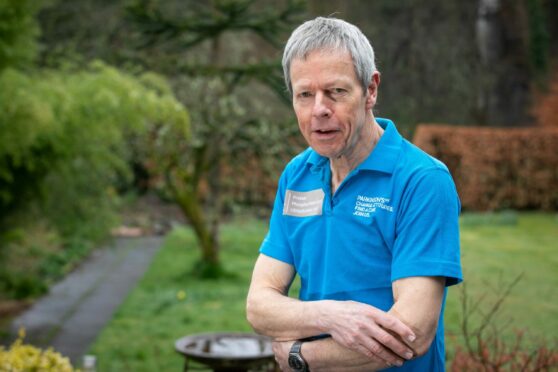
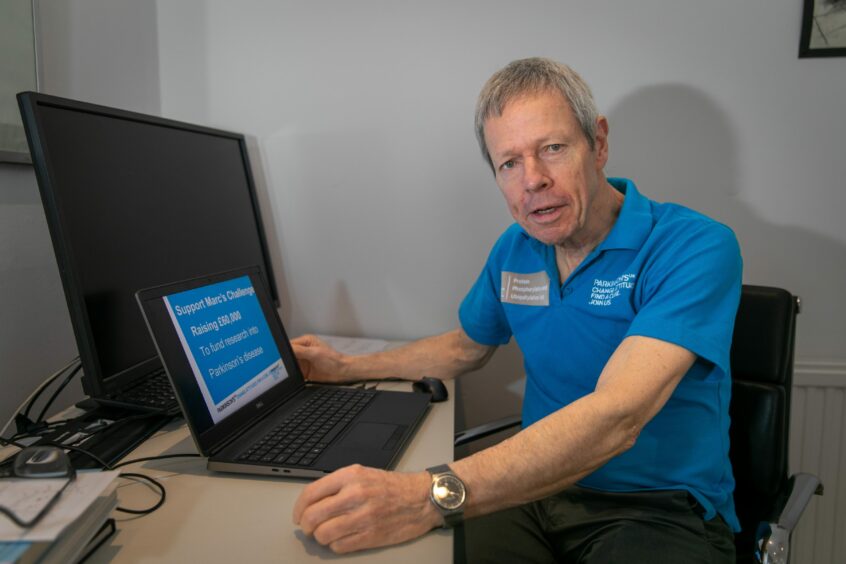
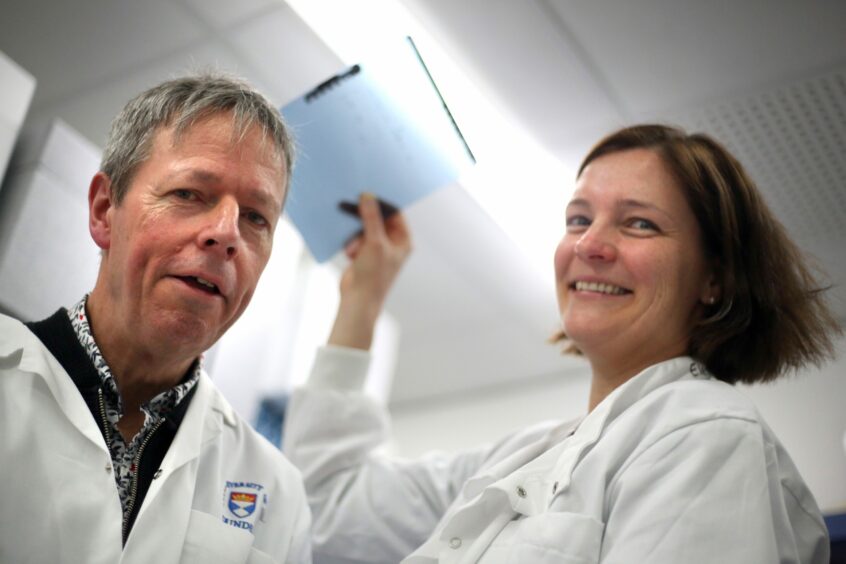






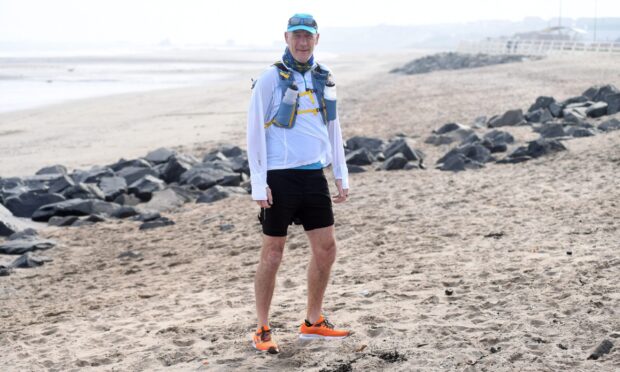
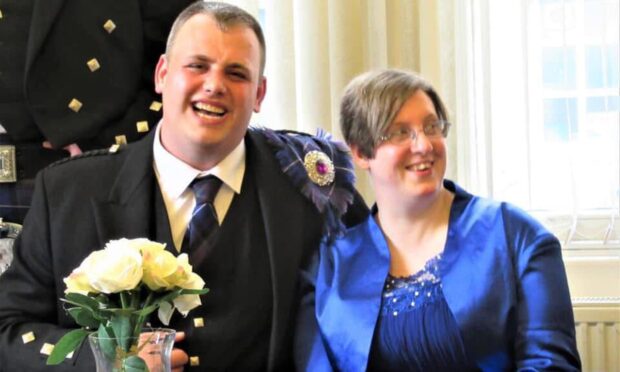
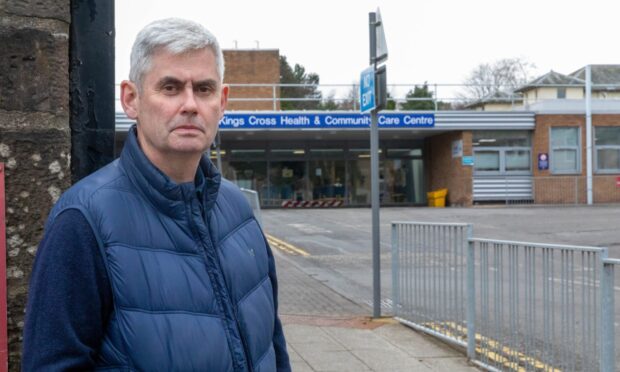
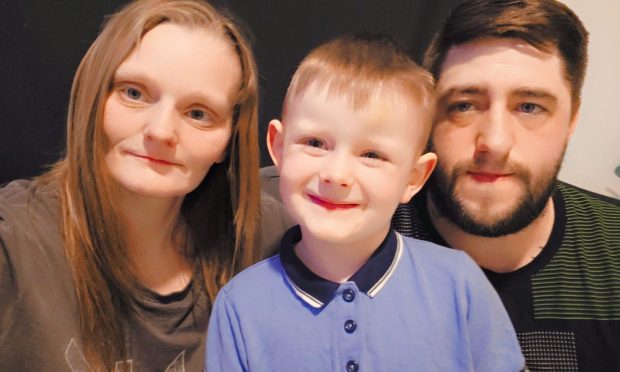
Conversation